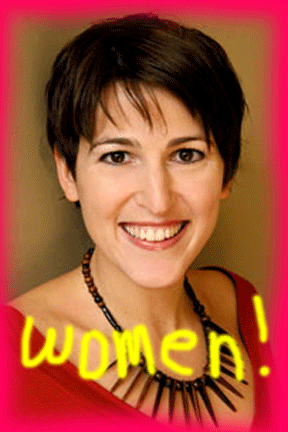

Now that we’ve had at least…oh…. a day or two break from the ongoing Los Angeles Times trauma, it is helpful to remind ourselves that, whatever the fate of newsprint, good journalism can and will continue.
To illustrate the point, let me introduce you to two smart young LA journalistic talents.
I got to know them while they were at USC. They were not my students but were mentored by my good pal, Marc Cooper in a new program at Annenberg called News21.
Amanda just got her MA in journalism from USC. In a week or so, she’ll begin an on staff job legal affairs beat reporter for The Daily Journal.
Last week Amanda had not one but two NPR stories on air—one on Day to Day, a second on Marketplace.
Be sure to listen in particular to her story for Day to Day that tells how the state of Nevada may play an unexpectedly big part in picking the next POTUS.
(By the way, speaking of the Daily Journal, next week my esteemed colleague and friend Alan Mittelstaedt will join the DJ as its Associate Editor!)
HANNA INGBER WIN
Another recent MA in journalism grad, last week Hanna began a new job as criminal justice reporter for The New York Sun. (We talked a bunch about cops et al, before she left.)
And also before she left, Hanna sold the story she’s been working on this summer to the LA Weekly. It’s about “…the 4 million Iraqis displaced by the violence and whose fate is mostly ignored by both campaigns.”
I’ll link to it when it comes out, but in the meantime, here’s a preview:
Kamil Silewa cannot afford a car so he climbs into mine. We drive down Main Street in El Cajon, past a Babylon hair salon and Iraqi restaurants selling beef kabob, and turn into his apartment complex. Silewa, a 45-year-old Iraqi who recently won his asylum case, wants to show me how he lives in America. We enter his apartment and his roommate, another Iraqi asylee, is sitting in the living room watching the news in Arabic. A friend lent them the television, old sofa and a coffee table. The two men have been living in El Cajon for months but neither can find a job. Silewa walks me into the one bedroom the men share. I whip out my camera, but there is not much to take photographs of. The Iraqis cannot afford beds and sleep on the floor.
Silewa spent the past three years running from war. He fled death threats in Iraq in 2005, crossed countless borders, worked dirty jobs, walked for days through Tijuana and spent eight months in prison-like conditions at detention centers in San Diego. Finally, Silewa has found safety in America. Yet his struggles have just begun.
The three of us gather in the living room, and Silewa’s roommate, Salem Denho, tells me he left Iraq in 2000 because of the violence. Silewa says: “Danger, bombings, everyday killings.” Denho explains that his parents, who are Christian, still live in Baghdad and receive threats because of their religion. “Now they can’t [step] outside, they can’t buy anything.” He says a Muslim militia recently killed his friend who lives near his parents. I ask Denho if he wants to bring his parents to the United States. He responds: “I wish, but how?”Silewa came to America in order to get permanent residency and bring over his wife and two sons, whom he has not seen in two years and recently fled Iraq to Germany. But the family reunification process will take another year, and Silewa has no idea how he will pay for the airfare from Germany. Without a car or job, Silewa sits in his apartment and thinks about his family.
“I still can’t sleep, I am still thinking a lot about my family. What really makes it worse is I’m not finding a job to support myself and to help my family [come here],” Silewa said through a translator at the Chaldean-Middle Eastern Social Services office in El Cajon. He said that he and Denho “both sit all night and just cry. I really want to cry just to release it.”
More than 4 million Iraqis, forced to flee their homes after death threats and bombings, have been displaced by the ongoing violence. About half are displaced inside Iraq and often languish in camps without proper security or enough food and aid. The other half have fled to neighboring countries like Syria and Jordan, living a life of constant fear of deportation or imprisonment in countries that do not recognize them as refugees and might at any moment kick them out. Taken as a whole, the current Iraqi diaspora is considered to be one of the greatest humanitarian crises of our times. Silewa is but the local face of a monumental and mostly ignored global crisis, which also embodies perilous national security concerns.Out of the millions displaced, the Bush administration has allowed about 8,000 Iraqi refugees to resettle in the United States. While that is relatively a tiny number of new arrivals, it is El Cajon that has become an epicenter of Iraqi relocation. They choose to resettle in San Diego County because with tens of thousands of Iraqis it has the second largest community in the United States, after Detroit.
While the American presidential candidates regularly debate and nit pick the future of American troop levels in Iraq, the most dramatic and pressing byproduct of the war, the desperate plight of millions of displaced Iraqis is virtually ignored by the two candidates. Senators Barack Obama and John McCain have starkly different positions on the war, which is the biggest foreign policy issue of the campaign. But no matter who is elected and implements his policy of either gradual withdrawal or keeping troops on the ground, the next administration will be stuck with this growing humanitarian and security crisis…….
As I said, I’ll link to it when it comes out in the Weekly.

Ah, another graduating class of left-wing journalism students, the only kind, turned loose on American readers. You know, Celeste, I can easily blow holes all through Mrs. Win’s article that you reference. For their final exam, journalism students should be required to write an article that makes so much sense and is so accurate that I can’t criticize it. Since Mrs. Win missed that golden opportunity, maybe she could re-write her upcoming article to meet that standard–if she can.
It’s simply amazing what you people graduate, and you are so deluded that you say that many of your students are conservatives. Would you be so kind as to produce one for us?
Nevertheless, good luck to Amanda and Hanna. If they truly are smart, they’ll become conservatives.
It takes a lot – even in the eyes of someone who suffers fools with as little patience as I do – to turn “tiresome” into “loathesome,” but Mr. PrideInIgnorance has managed. That he does it serially on two blogs is remarkable.
Three if you count GM’s Corner.
I don’t…
To be clear, the reason I don’t count it is because your level of childish wingnut ignorance is the norm there.
Surely, you don’t mean things like this, do you?
reg, all it takes for me to not argue with you or Celeste or anyone else like you is for you to start showing that you have a brain. Marxism doesn’t work.
You just keep proving my point, Woody. Do you spend so much time posting this stuff because in “the real world” everyone around you just rolls their eyes every time you open your mouth?
“For their final exam, journalism students should be required to write an article that makes so much sense and is so accurate that I can’t criticize it.”
Mm…maybe I should try this line of reasoning the next time I’m in a restaurant. “I shall only pay for this meal if I cannot find something wrong with it….Oops, this is a bit salty–you lose, I don’t have to pay.”
reg, in the real world, I’m considered a liberal.
Evan, I’m trying to stop jounalism students from poisoning the public. Your example only worries whether or not food is too salty.
Now, please, let’s concentrate on Celeste’s post about her buddies. I sincerely hope that they do well and wish them the best, but I also hope that they consider in their writings that there is a greater country outside of southern California (i.e., most of the rest of the U.S.) and that these areas have different perspectives that should be considered, reported, and respected.
reg, I’m tired of the back-and-forth rantings from you and the polite, logical responses from me. I’m going quiet for a while.
BTW Celeste, my friend “S” is a regular user of the DJ since its help wanted section is the best listing of legal Secty/paralegal jobs in town. Much better than the LAT or “Craigslist.”